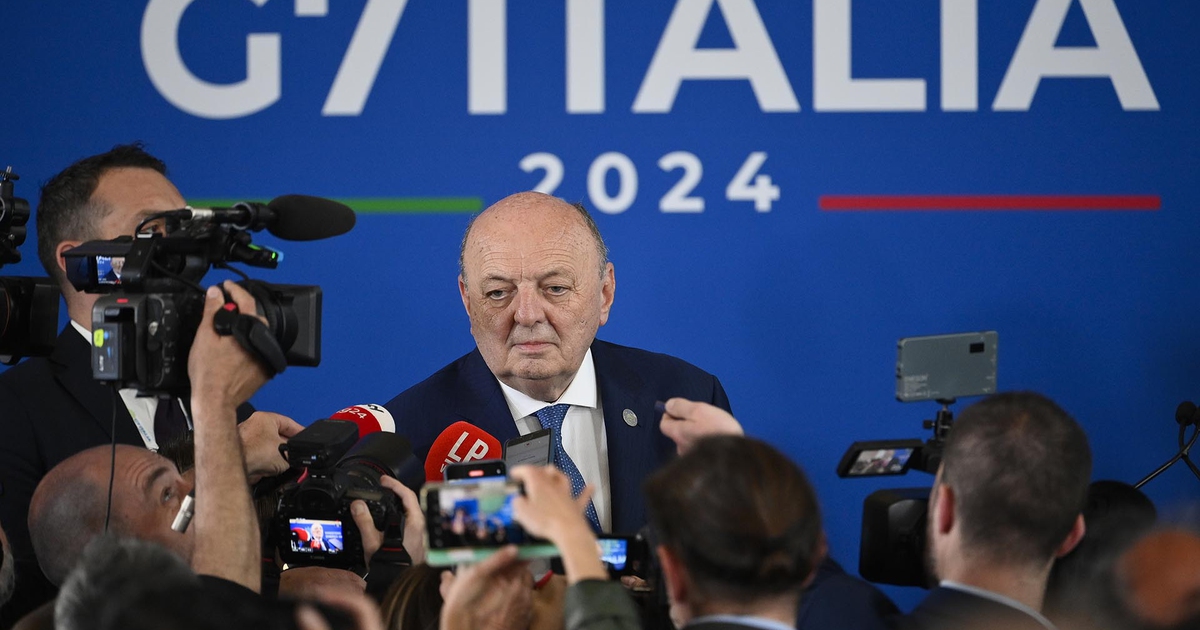The G7 Climate, Energy and Environment gave birth to the Venaria Charter, which many have defined as a “balanced, balanced” agreement. But the time for action is almost over.
A balanced deal, balanced, in line with expectations.
This is – in general – the opinion of the final document that arrived from Turin, respectively from Venario Reale, as the rotating president of the G7 for climate, energy and the environment, as well as the government minister for the environment and energy security, was excited to point out several times the Italian, Gilberto Pichetto Fraternity.
But the bottom line is different: what were the expectations Obviously not the same for everyone whereas the Charter of Venario – and not of Turin, which confirms how much the minister wanted to point out the “beauty of the place” – does nothing more than repeat commitments and concepts that have already been made or voiced in the past . No steps back is true, but no steps forward. However, take a step forward at the next climate conference, COP29 in Baku, it was more than necessary given that it will be held again in a country – Azerbaijan – that bases its economy on fossil fuels and will therefore do everything to “slow down” every possible step to decarbonize the global economy.
G7 Coal Agreement
IN Map of Venaria in fact, for the first time there is a time target associated with the dirtiest and most polluting fossil fuel of all. They say you must”abandon coal-fired power generation undiminished present in our energy systems during the first half of the 1930s this century or within a time frame useful for limiting the increase in average global temperature to 1.5 degrees Celsius”.
What does it mean? Our minister explains it well: it means that the target to leave coal must be “compatible with the starting social and economic situation of each country”. And that there must be no other geopolitical obstacles like a new war in the way. And if it wasn’t already clear, Ken Saitō, Japan’s Minister of Economy, Trade and Industry, scores and: “The document does not say that the use of coal will be completely abolished“. Therefore, let’s say clearly: “it is a progressive path, nothing else”.
After all, those who followed the work of COP28 in Dubai already understood it from the presence of the word undiminished in the text. A word that suggests that which is not subject to CO2 capture and storage. That’s why Japan wanted to make it clear that coal-fired power plants that are equipped with a system to reduce greenhouse gas emissions will not be decommissioned.
In terms of renewables, the G7 confirms the need to triple the installation of new capacity, as required by the International Energy Agency, as well as the need to multiply the capacity to store generated electricity 6 , to a total of 1,500 gigawatts by 2030, compared to the current 230 gigawatts.
Nothing new, we said. A balanced matchup in line with the expectations of those who played to the downside, as staying put is like going backwards as time passes and decides for us in the meantime.
What the Venarij Charter says about nuclear energy and biofuels
The only information that can be found in the Charter of Venaria is a reference to nuclear. Finally, it is clarified once and for all that nuclear energy is a source useful for reducing emissions for those who have them (nuclear energy for countries that use it). For others, the only useful indication is the opportunity to engage in research and experimentation nuclear fusion.
and further biofuels? They are literally only mentioned on a few occasions. Almost like a concession to the Italian government on this issue. Furthermore, as the (outgoing) Commissioner for Climate Action Wopke Hoekstra also stated, car industry leaders “confirmed that they can respect goals set by the European Union on electric vehicles“. All they want is for the targets to be clear “and for governments to also invest in charging points and electricity networks”. Another thing is the use of biofuels for aircraft. Here – concludes Hoekstra – “there is a lot of room for improvement”.
From the G7 in Turin, or in Venaria, that’s all. Or rather nothing. Line may switch to Baku for Cop29. In the hope that the G20 scheduled in Rio de Janeiro, Brazil on the eve of Cop29 can rekindle hope, even before enthusiasm.

